Assessment Data
Benny Kuttler
 USA
USA
If your test results are entered you can analyze where is the place for improvement in Analytics section
2020-11-25
filled in 39% (63 of 160)
Created: 2020-11-25 20:41
Modified: 2020-11-26 01:33
Basic data
Weight
113 lbsSubjective age
15 years oldAverage sleep duration
7.5 hoursDaily activity
Sedentry Training-oriented nutrition
100% Climbing experience (excluding breaks)
2 yearsClimbing-specific training
4 days/weekVolume of climbing-specific training
13 hours/weekClimbing outdoors
0 days/yearDevelopment predisposition
Strength Training with coach
Only when needed Mental training/methods
None Overall workout
0 days/weekVolume of overall workout
0 hours/weekMassage or foam rolling
None Stretching
0 hours/week Average of 3 hardest leads ONSIGHTPrimary set
Average of 3 hardest leads ONSIGHTPrimary setOS lead level
5.12d YDS USA Average routes length
60 ftEnvironment
Gym Climbing angle
Mix  Average of 3 hardest leads REDPOINTPrimary set
Average of 3 hardest leads REDPOINTPrimary setRP lead level
5.12d YDS USA Average routes length
60 ftEnvironment
Gym Climbing angle
Mix  Average of 3 hardest boulders FLASHEDPrimary set
Average of 3 hardest boulders FLASHEDPrimary setFlash boulder level
V8 USA Environment
Gym Climbing angle
Mix  Average of 3 hardest boulders REDPOINTEDPrimary set
Average of 3 hardest boulders REDPOINTEDPrimary setRP boulder level
V9 USA Environment
Gym Climbing angle
Mix Strength / Power / Endurance
 half crimp dead hang @ 10 seconds -> MAWPrimary set
half crimp dead hang @ 10 seconds -> MAWPrimary set15 mm edge
73 lbs 3 finger dead hang @ 10 seconds -> MAWFull set
3 finger dead hang @ 10 seconds -> MAWFull set15 mm edge
55 lbs minimum edge dead hang @ 4 seconds -> MEFull set
minimum edge dead hang @ 4 seconds -> MEFull setminimum edge depth
6 mm 90° lock-off @ 10 seconds -> MAWPrimary set
90° lock-off @ 10 seconds -> MAWPrimary setleft hand - hard
15 lbsright hand - hard
15 lbs campus power slap -> MaxDPrimary set
campus power slap -> MaxDPrimary setleft arm
106 cmright arm
108 cmMobility / Flexibility
To enter data edit the assessmentBalance / Coordination
To enter data edit the assessmentMental
When I make a mistake in my movements while climbing, it doesn't distract me, I make do and push on.
Always
I know how to manage my focus while climbing.
Always
I can get my attention back to the "here and now" and focus on the task if something distracts me.
Always
On competition day or before pulling onto rock I focus only on my task, on movement, and on what helps me to be focused and confident.
Always
I know what can distract me while climbing (noise, sun, wind, other climbers, comments, slippery foothold or hold) and I can control it.
Always
When I rest in the middle of a climb, I feel what happens in my muscles and I can determine the moment I should continue climbing.
Sometimes
When I feel anxiety before climbing at competitions or the crag, I can control it and reduce it with my techniques, e.g. calm breathing, remembering effective trials, successes, etc.
Often
I become unnecessarily tense/angry/uptight before difficult movements because of nervousness.
Never
My mind races when I approach a difficult spot or a crux.
Rarely
I can stay positive even after an unsuccessful start in a competition or a bad day at the crag and make constructive conclusions.
Always
I'm aware of my thoughts about any long standing projects before I approach them, I manage these thoughts and how they affect my attitude.
Always
When I say positive things to myself I feel calmer.
Sometimes
I can successfully motivate myself by encouraging myself inside my head or to myself.
Always
I enjoy taking part in competitions or climbing outside even if I fail or send the route inefficiently.
Always
While climbing a project or in competitions I only think about not falling off, not losing to a rival, not being last place.
Always
I often choose routes that are difficult for me, but possible to send (does not apply to warm-up or cool down at the end of the day or injury situations).
Always
I can motivate myself to train hard even if I don't see immediate progress.
Always
Failures in climbing are acceptable to me.
Always
I trust my training plan and I believe that the goals I’ve chosen are appropriate.
Often
I know what my goals for the day are when I go into training or show up at the crag.
Sometimes
Before the start of the climbing season I set a main climbing goal.
Always
After the end of the season I take stock of how I performed on my climbing goals.
Always
I go out of my comfort zone and fight to the end, despite high probability of falling off.
Always
I pay attention to the opinions of others and negative comments if I do poorly on the route or in competition.
Never
I have symptoms such as: palpitations, sweaty hands, shortness of breath, dry mouth or tightness/cramps in the stomach before a competition or important/difficult move.
Never
During climbing I focus on whether the equipment works fine, instead of climbing.
Never
I am terrified by the fact that I may lose control over my climbing (slipping out from a foot hold, wrong sequence, extreme nervousness, etc.).
Never
My self-confidence is stable regardless of bad results at competitions or failure on rock.
Always
I'm nervous about climbing onsight / my project / a competition route due to uncertainty of the result and possible shame.
Never
I believe in my climbing capabilities and that I will achieve everything I plan.
Often
I make difficult and surprising moves that I've never done before at the limit of my abilities.
Sometimes
When climbing I am sure of my physical, technical, and mental preparation.
Always
I can imagine doing my climbing task using kinesthetic sense (f.eg. load on fingers, type of friction, shoulder tension, legs tension, body position, etc.).
Always
I have difficulty forming a vivid, dynamic, colorful, and multi-sensory image of myself climbing (sense of sight, hearing, etc.).
Never
I watch better climbers than myself during live competitions or in movies to improve my climbing technique.
Always
I can imagine the entire sequence of moves or sequences in the most important places, including foot holds and holds, in their actual order.
Always
 Share
Share